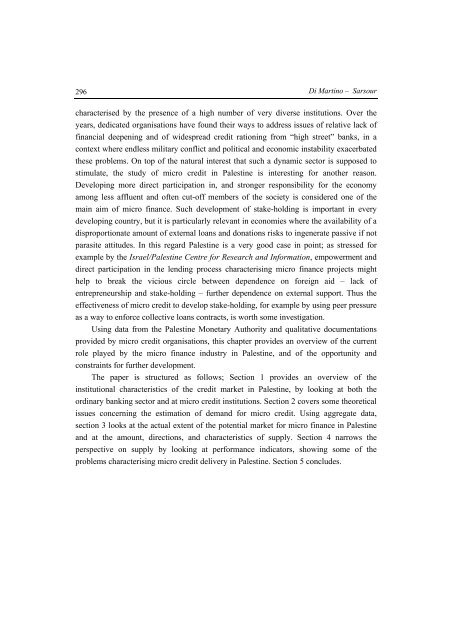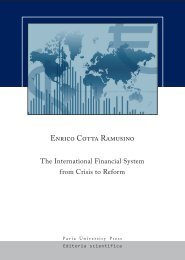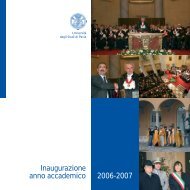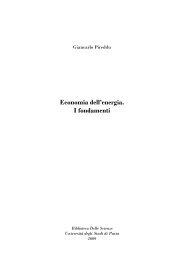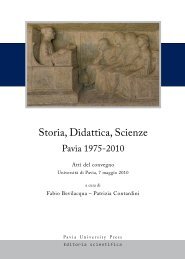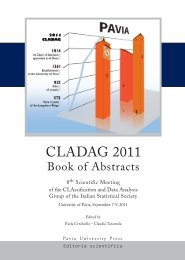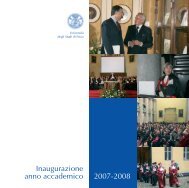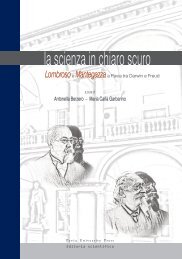The Palestinian Economy. Theoretical and Practical Challenges
The Palestinian Economy. Theoretical and Practical Challenges
The Palestinian Economy. Theoretical and Practical Challenges
You also want an ePaper? Increase the reach of your titles
YUMPU automatically turns print PDFs into web optimized ePapers that Google loves.
296<br />
Di Martino – Sarsour<br />
characterised by the presence of a high number of very diverse institutions. Over the<br />
years, dedicated organisations have found their ways to address issues of relative lack of<br />
financial deepening <strong>and</strong> of widespread credit rationing from “high street” banks, in a<br />
context where endless military conflict <strong>and</strong> political <strong>and</strong> economic instability exacerbated<br />
these problems. On top of the natural interest that such a dynamic sector is supposed to<br />
stimulate, the study of micro credit in Palestine is interesting for another reason.<br />
Developing more direct participation in, <strong>and</strong> stronger responsibility for the economy<br />
among less affluent <strong>and</strong> often cut-off members of the society is considered one of the<br />
main aim of micro finance. Such development of stake-holding is important in every<br />
developing country, but it is particularly relevant in economies where the availability of a<br />
disproportionate amount of external loans <strong>and</strong> donations risks to ingenerate passive if not<br />
parasite attitudes. In this regard Palestine is a very good case in point; as stressed for<br />
example by the Israel/Palestine Centre for Research <strong>and</strong> Information, empowerment <strong>and</strong><br />
direct participation in the lending process characterising micro finance projects might<br />
help to break the vicious circle between dependence on foreign aid – lack of<br />
entrepreneurship <strong>and</strong> stake-holding – further dependence on external support. Thus the<br />
effectiveness of micro credit to develop stake-holding, for example by using peer pressure<br />
as a way to enforce collective loans contracts, is worth some investigation.<br />
Using data from the Palestine Monetary Authority <strong>and</strong> qualitative documentations<br />
provided by micro credit organisations, this chapter provides an overview of the current<br />
role played by the micro finance industry in Palestine, <strong>and</strong> of the opportunity <strong>and</strong><br />
constraints for further development.<br />
<strong>The</strong> paper is structured as follows; Section 1 provides an overview of the<br />
institutional characteristics of the credit market in Palestine, by looking at both the<br />
ordinary banking sector <strong>and</strong> at micro credit institutions. Section 2 covers some theoretical<br />
issues concerning the estimation of dem<strong>and</strong> for micro credit. Using aggregate data,<br />
section 3 looks at the actual extent of the potential market for micro finance in Palestine<br />
<strong>and</strong> at the amount, directions, <strong>and</strong> characteristics of supply. Section 4 narrows the<br />
perspective on supply by looking at performance indicators, showing some of the<br />
problems characterising micro credit delivery in Palestine. Section 5 concludes.


